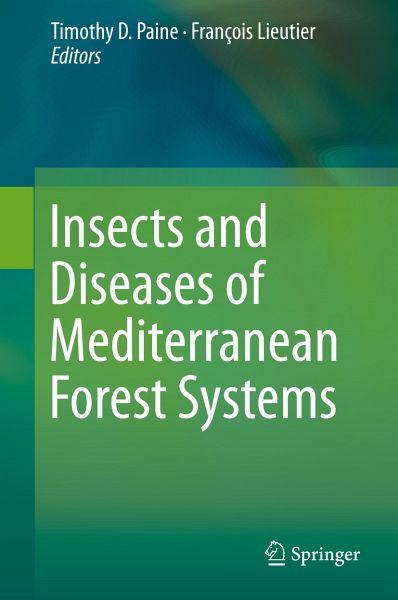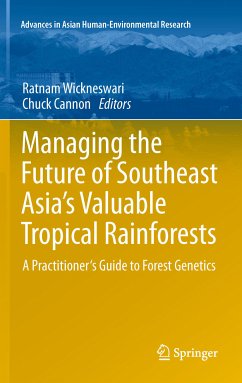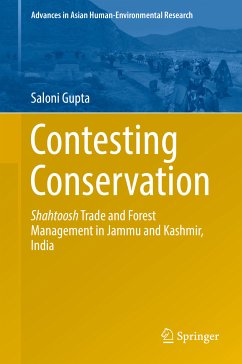
Insects and Diseases of Mediterranean Forest Systems (eBook, PDF)
Versandkostenfrei!
Sofort per Download lieferbar
160,95 €
inkl. MwSt.
Weitere Ausgaben:

PAYBACK Punkte
80 °P sammeln!
Insect and disease issues are often specific to the Mediterranean forest systems rather than shared with the temperate forests. In addition to the specific native insects and diseases, the forests are subject to the invasion of exotic species. The forests are also at risk from high degrees of human activity, including changing patterns of forest fires, land management activities, intensive plantation forestry using introduced timber species from other Mediterranean climate zones, and atmospheric deposition. Combined with elements of global climate change that may disproportionately affect Medi...
Insect and disease issues are often specific to the Mediterranean forest systems rather than shared with the temperate forests. In addition to the specific native insects and diseases, the forests are subject to the invasion of exotic species. The forests are also at risk from high degrees of human activity, including changing patterns of forest fires, land management activities, intensive plantation forestry using introduced timber species from other Mediterranean climate zones, and atmospheric deposition. Combined with elements of global climate change that may disproportionately affect Mediterranean climate systems, this creates a number of significant management issues that are unique to the Mediterranean forests. It is our goal that the information contained in this volume will contribute to understanding the unique aspects of Mediterranean forest systems and to protecting these critical resources.
Dieser Download kann aus rechtlichen Gründen nur mit Rechnungsadresse in A, B, BG, CY, CZ, D, DK, EW, E, FIN, F, GR, HR, H, IRL, I, LT, L, LR, M, NL, PL, P, R, S, SLO, SK ausgeliefert werden.












